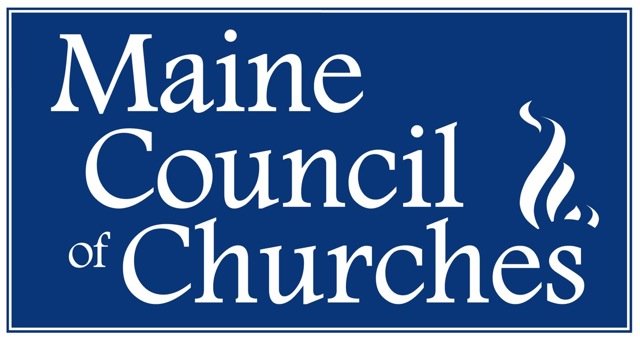When power, control and rules get between people and God, the priorities are wrong
from The Bangor Daily News Opinion June 25, 2021
Marge Kilkelly lives in Dresden and attends Christ Church in Gardiner. She has recently been named as chair of the Diocesan Resolutions Committee and previously served as a deputy to the National Episcopal Convention. She is a member at large of the Maine Council of Churches.
Action by the U.S. Conference of Catholic Bishops to draft a resolution denying communion to politicians — particularly President Joe Biden — who support a woman’s full access to health care including to abortion is distressing. Distressing, but not surprising. It is just one more action designed to keep them solidly in a position between God and the faithful and to threaten the faithful with the very salvation of their souls if they are not compliant.
An indicator that this action is selective and primarily political is that the bishops are not discussing denying communion to politicians who support the death penalty, even though on Oct. 3, 2020, Pope Francis issued a new encyclical entitled Fratelli Tutti (“All Brothers”) that ratified the position of the Catholic Church against the death penalty.
It’s not new. For example, in the 14th century, the Rev. John Wycliffe was declared a heretic for his effort to translate the entire Bible from Latin into English to make it more accessible to poor Catholics.
John D. Whitney, a Jesuit priest, in a recent Facebook post reminded the bishops that clergy are merely the servers at God’s table, not the gatekeepers. That post resonated with me and my experience in the church.
My education began in a Catholic school — Mass every morning and catechism was a class between arithmetic and reading. The church was part of me, and I was part of the church. It was a significant part of my identity.
When my parents moved back to Maine from Connecticut, I attended public school and going to Mass became even more important in my life. It was my touchstone, my safe place, the place where I felt most comfortable. It was home in a time of upheaval, a place I could always go back to — or so I thought.
After a number of life’s twists and turns, I was a divorced young mother. My attempt to find the comfort of the church was thwarted by the local priest, who not only denied me communion but insisted that he would not baptize my children until I had regularly attended church for a year.
I obliged.
I remember the pain of being prohibited from communion. I felt lost and sitting in the pew, and not going for communion was difficult. I felt guilty that my wretchedness as a human being was also carried over to my children who could not be baptized. It was an agonizing process. The church I loved was not there when I needed it most.
One morning at coffee hour after Mass, this same priest picked up my beautiful toddler, who had been playing on the floor and proclaimed, “It’s hard to believe that you are not a child of God!” Those words pierce my heart to this day.
At that point, I left the church and was unchurched for years. I prayed the familiar prayers, I listened to God for guidance. One day, that message arrived. I knew then that my inability to receive communion or have my children baptized was not because God’s opinion of me had changed, but that a handful of men in power were determined to make me feel lesser and keep me in my place.
As is God’s way, about that time, when I was so ready, I was invited to a service at the local Episcopal church. When I heard the communion call, “This is the Lord’s table, and everyone is welcome,” I knew I had found my real spiritual home.
My children and I were welcomed with open arms, love and caring.
For me, the Episcopal Church has been the fertile ground and care that has allowed my faith to both deepen and bloom. That in turn, has allowed me to be a source of support and caring for others, as I believe is our mission in this life.
As I look back on my earlier faith journey in the Catholic Church, my time was focused on me. Working to obey the rules, be compliant and meeting standards to achieve their version of God’s approval. There was no time or energy to do God’s work in the world.
Ironically, maybe I should thank that priest and the men in power for forcing me to look at myself and learn more about my personal relationship with God and how to live as a Christian.

